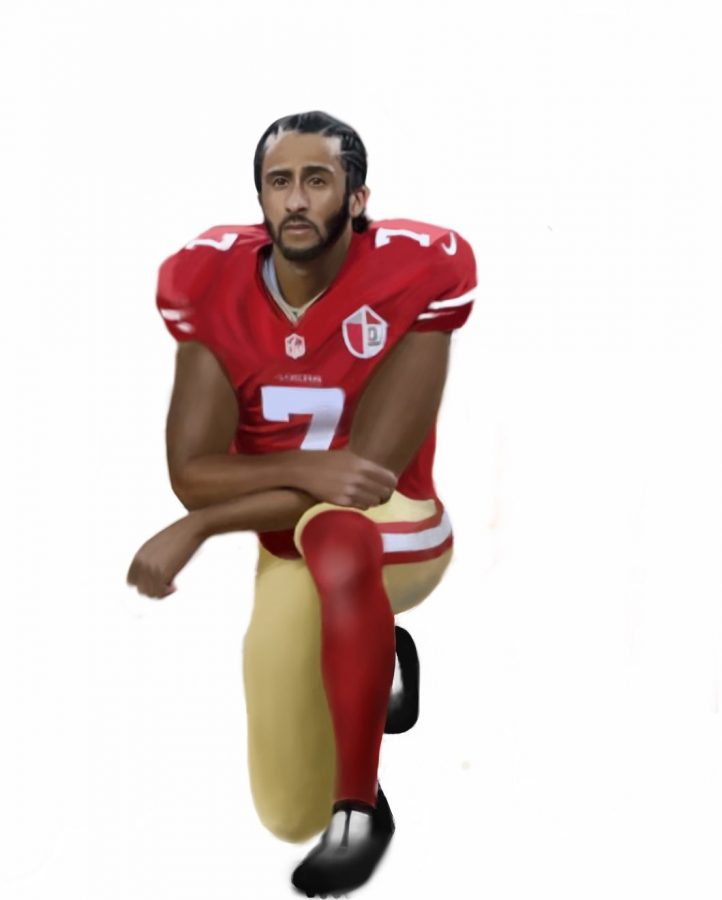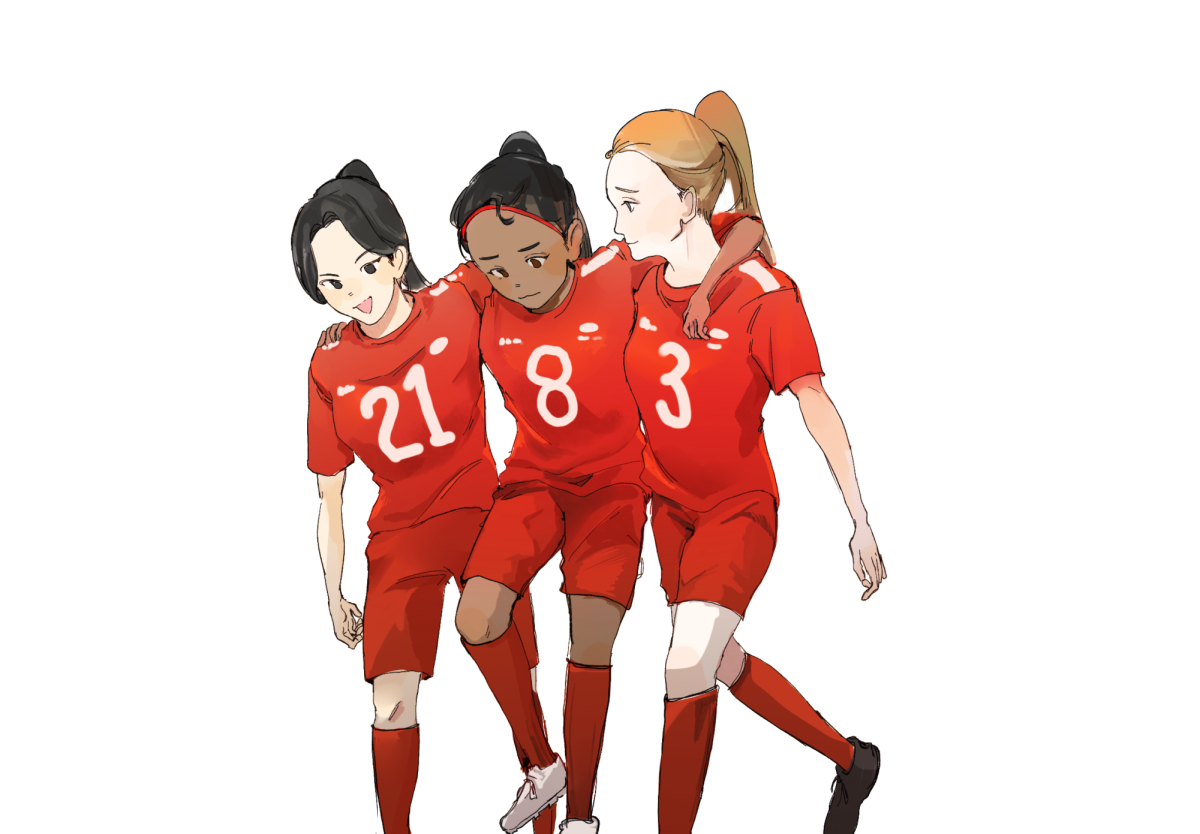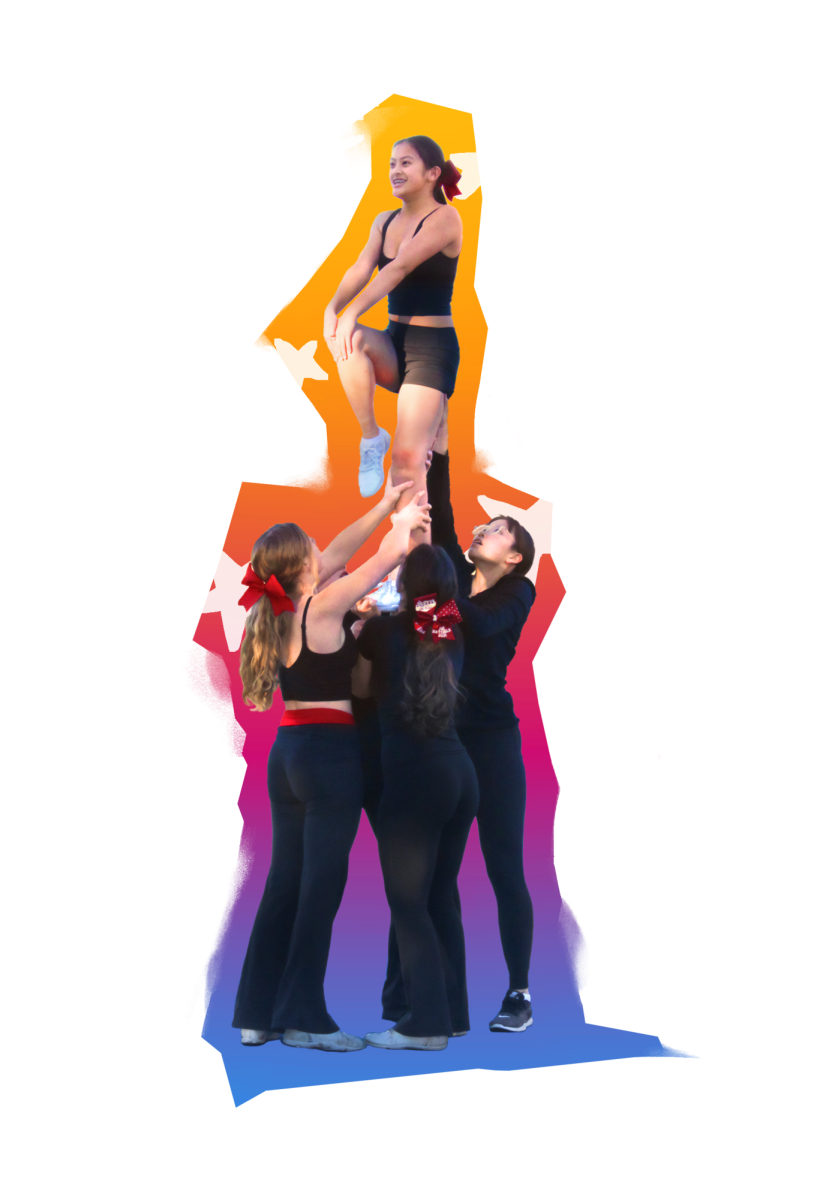Written by Janet Wang
As the national anthem rang throughout Levi’s Stadium during a football game between the San Francisco 49ers and Green Bay Packers, all of the players stood, except one. 49ers quarterback Colin Kaepernick took a knee beside his team in protest of racial inequality and police brutality,spurring national controversy. This demonstration fails to tackle social inequality issues and is an ineffective approach to truly cultivate positive reform.
Kaepernick’s protests do not foster progressive change. In an interview with the National Football League (NFL), Kaepernick stated that his demonstrations were attributed to a cause that is “bigger than football.” He also expressed that he would not stand until he feels that the American flag and anthem represent what he feels it is supposed to represent. Kaepernick’s protests, however, do not properly address the root problems of police brutality and social division. Racial stigma and police brutality have been prevalent issues in the history of the United States; kneeling will not resolve this. In addition, Kaepernick’s use of his platform to initiate conversation proves to be ineffective and unsuccessful. By asserting that he will not stand for the anthem until the violence stops, Kaepernick fails to influence any palpable results.
The Kaepernick Effect also proves to be counterproductive in the fight against systemic racism. In fact, a September Reuters poll found that 60 percent of Americans disagree with Kaepernick’s decision to protest and 71 percent thought that it was unpatriotic. However, 70 percent of those who disagree with Kaepernick’s stance identified as white, while only 40 percent who disagree identified as a racial minority. Although Kaepernick’s original intention was to protest racial division, it is ironic that the reactions have increased racial tension. “The Star Spangled Banner” allows unification in a historic ritual that is not only symbolic, but embodies a radical nation in solidarity. Moreover, in the 1960s, Martin Luther King Jr. stood for the national anthem before giving his infamous “I Have a Dream” speech. Even in a time where racial oppression was exacerbated more than ever, King recognized the nation as one open to reform and social change and channeled his views into a different outlet. In times of injustice, solidarity is essential for a nation to solve its problems together, and people should not protest against a symbolic song and divide the country further.
Although some may argue that Kaepernick’s choice to kneel is a fundamental American right to free speech and expression, it disrespects a greater group of people who put their lives on the line for its preservation and those who have died doing so. According to Fox Sports, Shaquille O’Neal, a retired professional basketball player, criticized Kaepernick for
his actions and made references to some family members that served in the military and law enforcement. Kaepernick’s actions not only insult the flag, but also insult the people who fight in its defense.
It is evident that Kaepernick’s protests prove to be feeble attempts at influencing change. His actions only augment the current social divide and fail to unite the nation in solving them. By continuing to kneel for the national anthem, Kaepernick waits on the world to change without implementing any tangible reform himself.






















